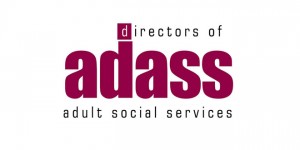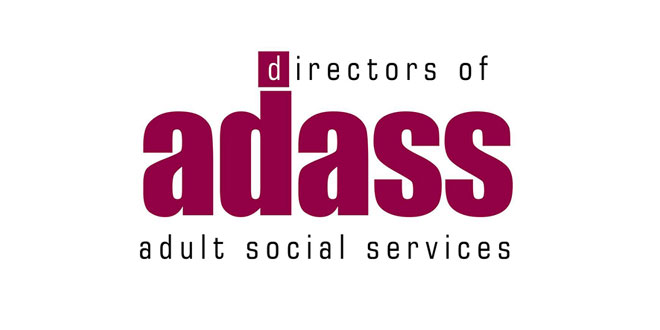Greater Awareness Needed To Prevent Abuse Of Older People With Care And Support Needs, Says ADASS
 Greater awareness of all forms of abuse – including scam mail and doorstep conmen – is needed to reduce the risk of older and disabled people being mistreated, adult social care directors urged today.
Greater awareness of all forms of abuse – including scam mail and doorstep conmen – is needed to reduce the risk of older and disabled people being mistreated, adult social care directors urged today.
To mark World Elder Abuse Awareness Day (June 15) the Association of Directors of Adult Social Services (ADASS) called for people to do more to look out for signs of abuse of family, friends and neighbours, and to listen properly and act on their concerns.
ADASS says it is essential that carers, healthcare professionals and others are trained and alert to recognise and respond to signs of elder abuse. It is calling for a Government-funded recruitment campaign to help address high staff turnover and a reliance on agency staff, which leads to lack of continuity and to carers not knowing the person they are looking after.
Abuse, which can be hard to spot, affects about 500,000 older people in the UK each year and can take many forms. As well as physical, sexual and emotional abuse and neglect, financial abuse can also have a significant adverse impact on victims’ health and wellbeing.
Older people defrauded in their homes are two-and-a-half times more likely to enter residential care within two years, compared to older people who are not victims of fraud, according to a government report.
Research also shows that 53 per cent of older people believe they have been targeted by fraudsters and that a third of older people who responded to a scam may have lost £1,000 or more.
Fraudsters, including bogus doorstep callers and scam mail firms, often target older people whose health can suffer after falling victim to a scam, leading to extra costs on the health and social care sector, which could be prevented through earlier prevention and protection.
Furthermore, victims, particularly those with learning disabilities, may not realise they are being abused or taken advantage of, instead believing their abuser is a friend but who in fact, could be stealing from them.
To help raise awareness of abuse and improve safeguarding practices, ADASS, in partnership with the Local Government Association, Adult Principal Social Worker Network and National Trading Standards, has published guidance on financial abuse and scams, for Directors and people working in social care.
The guidance features case studies on successful interventions involving council trading standards teams, which include:
- A 92-year-old woman living alone was duped into paying around £60,000 over 10 years – £500 a month – on bogus prize draws, with the equivalent of 34 bags of scam mail found at her home. She was taught how to spot scam mail, had her mail re-directed, her phone number changed, signed up to the telephone and mailing preference service and now receives regular visits from her sheltered housing association
- A man was conned into paying £164,000 – comprising his life savings and borrowed money – to Spanish Lotter fraudsters over a four-year period. Criminals behind the scam first told him he had won a prize before befriending him through letters and repeat phone calls requesting ongoing payments to release his winnings. The man continues to receive further support and advice
- A man was conned out of £90,000 for substandard home improvements. Intervention by Trading Standards resulted in support for the victim and a successful conviction and imprisonment of the criminals
- A visually impaired man in his 70s parted with his life savings of £75,000 over three years to a bogus share scam involving diamonds, fine wine and fine art. The victim is now in sheltered housing and is being supported by Trading Standards, social services and housing teams.
ADASS says that it is vital that people receiving care are listened to and understood by families, carers and neighbours to ensure their behaviour and concerns are not dismissed as signs of dementia but investigated and acted upon to prevent potential abuse.
Glen Garrod, Vice President of ADASS, said:
“Safeguarding adults at risk of abuse or neglect is one of the most important things that Social Services and their partners do and is a top priority at ADASS.
“The rights of older and disabled people need to be protected just as much as those of children, particularly when they are less physically and emotionally strong and able to free themselves of abuse.
“Carers, families and neighbours need to be more aware of abuse, which can see older and disabled people lose their life savings and suffer deteriorating health after falling victim to scam letters and phone calls and doorstep fraudsters.
“We all need to listen to and understand the concerns of people receiving care, and not be afraid to act on them or merely dismiss them based on stereotypical assumptions of old age or dementia.
“Adult social care’s greatest asset is its workforce and a recruitment campaign funded by the Government which meets the needs of carers will improve safeguarding work across a better resourced, more fulfilled and experienced workforce.
“The guidance we have published in tandem with partners on financial abuse and scams, aims to improve safeguarding work for those working in social care. Improved information sharing between health and social care agencies, and robust risk assessments and record keeping will also help to minimise the risk of, and identify potential signs of abuse.”
Louise Baxter, from the National Trading Standards Scams Team, said:
“Family, friends and neighbours play a crucial role in helping protect consumers and preventing them from falling victim to scams. As well as leaving people out of pocket – we estimate £5-10 billion is lost to scams each year in the UK – victims are often lead to loneliness, shame and social isolation, which is why we’re committed to working with ADASS to issue this guidance.
“We find that scams, specifically mail and doorstep scams, tend to be targeted at older people and members of our communities who find themselves in vulnerable situations, which is why safeguarding support and prevention to stop people falling victim to scams in the first place are so important.
“To help protect and prevent your friends, family and neighbours from criminal scams you can sign up to free training by joining our Friends Against Scams campaign: www.friendsagainstscams.org.uk. We are asking communities to take a stand against scams. In the meantime, I’d urge anyone who suspects they or a loved one may be a victim of a scam to report it to the Citizens Advice consumer helpline on 03454 04 05 06.”





